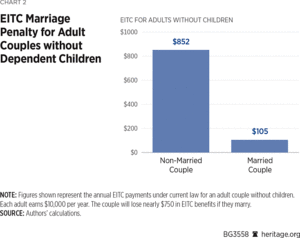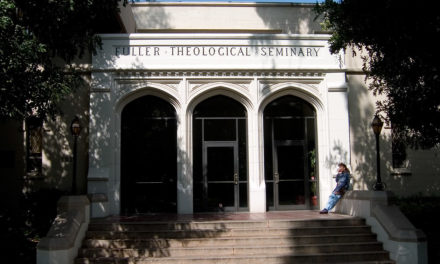For months, congressional leaders, members and staffers have been haggling over a proposed $3.5 trillion spending bill.
The “Build Back Better Act” (HR 5376) has been described as the “largest piece of legislation in the history of the world” and would provide “free” community college, child care, universal preschool, and 12 weeks of paid family and medical leave. The bill also raises taxes.
However, HR 5376 has currently stalled in Congress. Some moderate Democrats see the legislation as too sweeping and costly. More progressive ones believe the bill doesn’t go far enough.
And now, there’s growing concern that the bill’s changes to the tax code could worsen already existing financial penalties for couples who get married.
This concern comes from the bill’s changes to the Earned Income Tax Credit (EITC), which “helps low- to moderate-income workers and families get a tax break.”
This tax credit benefits those who work, and varies in amount according to one’s annual income, family size and marriage status.
The EITC maxes out at a certain amount depending on one’s income. For couples who get married, their income is combined for EITC purposes, and therefore the amount the couples receive is reduced or eliminated.
According to The Heritage Foundation, “the EITC credit is based on the pair’s combined incomes rather than their separate incomes; typically, when a couple marries, their combined income makes them ineligible for the credit entirely.”
“For example, if a nonmarried, childless couple each earn $10,000 per year, they will receive combined EITC credits worth $852; however, if they marry, the credit will be cut to $105.”

Photo Credit: The Heritage Foundation
Recently, a group of 35 senators sent a letter to Senate Majority Leader Chuck Schumer and Sen. Ron Wyden, Chairman of the Committee on Finance, warning about these “harmful penalties for marriage.”
According to the letter, “the current draft of the reconciliation bill takes an existing marriage penalty in the Earned Income Tax Credit (EITC) and makes it significantly worse.”
“A couple in 2019 with two children where one parent earns $12,000 and the other $30,000 could pay $1,578 more in taxes if they are married … The reconciliation bill could make the same family significantly worse off. It could nearly double the marriage penalty, costing the same parents $2,713 if they choose to marry.”
“We believe that marriage is a vital social good. It is misguided and unfair for the government to build bigger barriers for couples to marry,” the letter concludes.
The bill faces a difficult path to becoming law. Democrat leaders are using a process called “reconciliation” to move the bill forward, which allows a bill to pass through the U.S. Senate with 50 votes rather than the usually required 60.
However, since no Republican senators currently support the bill and several Democrats don’t support the bill in its current form, HR 5376 is stuck unless and until a compromise is reached.
Photo from Shutterstock.






